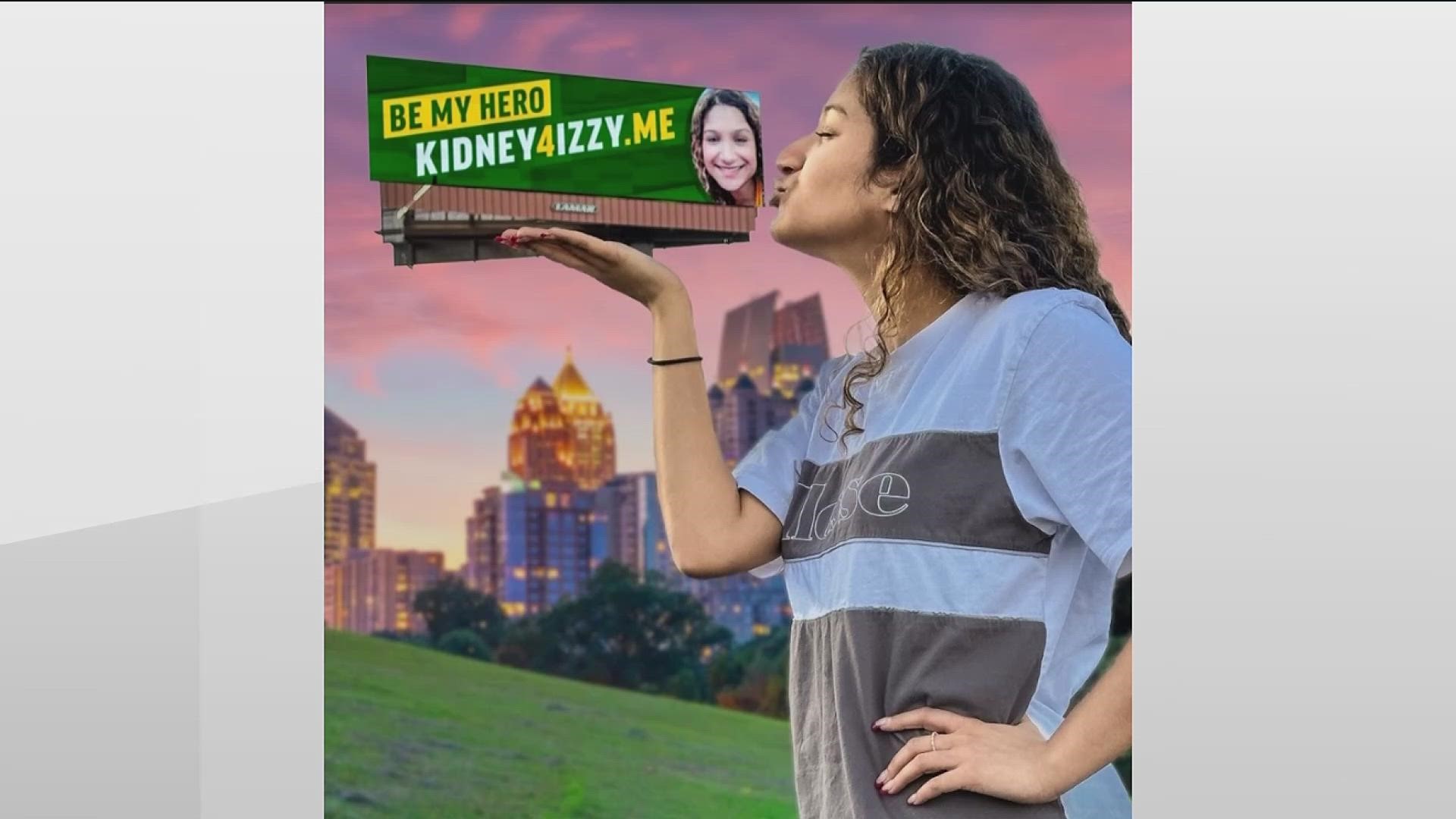ATLANTA — Isabella Dufauchard was just 17 years old when she received a life-changing diagnosis: severe kidney failure. Later that same month, Dufauchard was told she would need a donor.
Now, nearly two years after her diagnosis, Dufauchard still needs a kidney transplant. Currently, Dufauchard attends Kennesaw State University, where she continues to hope for a living kidney donor.
Family and friends have been a part of the 19-year-old's search for the perfect match. The teen, who is related to an 11Alive staff member, described how her mother got in touch with two billboard companies. They put her face alongside her website to help the search for potential donors.
The billboards went up at the beginning of February and are placed around the Atlanta area, Dufauchard said.
Metro Atlanta college student puts up billboard to find kidney donor
The Kennesaw State student said her ideal kidney donor is a healthy, living person around her age. Dufauchard also said the kidney donation would be covered fully by her insurance.
According to the National Kidney Foundation, people can live normal lives with only one kidney. As reported by the foundation, as long as the donor is evaluated thoroughly and cleared for donation, he or she can lead a normal life after the surgery.
Before her diagnosis, Dufauchard was healthy student-athlete at her high school. She said doctors still don't know the cause behind her severe kidney failure, explaining how she has no family history of diabetes, high blood pressure or high cholesterol.
"So they were confused as to why I have kidney failure, too. They said, how, you know, some people's bodies just give out sometimes. And my kidneys just decided to one day," Dufauchard said.
At this time, Dufauchard lives her life carefully and follows the instructions given by her nephrologist. This includes doing dialysis at home every night for six hours, which she does by using her at-home dialysis machine. It's an experience she described as difficult to navigate.
"All of my friends, they go out and kind of just do whatever, but I can't really, you know, go out to do it cause I have -- I'm tied down to this machine half the time," Dufauchard said.
Apart from at-home dialysis treatment, she must also follow a specific diet to protect her kidneys.
Those who wish to be a potential donor can visit Dufauchard's website here.







